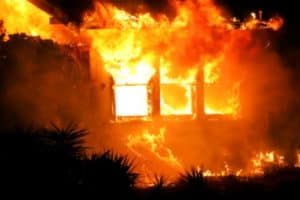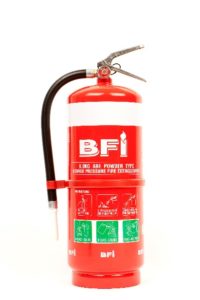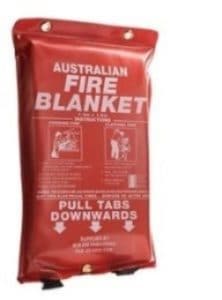
I can guarantee that every day in South Australia there is a fire in a home. Some of these result in the fires that we hear about on the evening news while others are small fires, often while cooking, which are extinguished without the involvement of the Fire Service.
Most people have two incorrect beliefs when it comes to a fire
1 / It won’t happen to me. While the chance of a fire happening to you is rare it is guaranteed that each day it happens to at least one person in South Australia. We enter the lottery on the hope of winning, in reality you are more likely to have a fire than win the lottery, so don’t gamble with your home.
2 / If a fire occurs in my home the Fire Service will be able to extinguish it without damaging too much of my home.
At the national Fire Australia conference earlier this year a presenter from UL showed the video of how quickly a fire in a modern home gets out of control, refer to the video below.
Within 3 minutes 30 seconds after the fire was started the room is uninhabitable. Considering the smoke alarm probably activated between 1 minute and 1 minute 30 seconds after the fire started that is not very long to get out of the room – two minutes!
But what about the fire service?
The following table shows the progression of the fire compared to the corresponding response from the Fire Service.
| Time | At Home | The Fire Service |
| 0:00 | Fire Started | |
| 1:30 | Smoke alarm activated if installed in room of origin | |
| 2:30 | You have started to investigate, found the fire and left the building | |
| 3:00 | You call 000 | Fire Service receive the phone call |
| 3:30 | Room fully engulfed in fire, the fire is now spreading to other rooms | |
| 6:00 | Fire Service are mobilised | |
| 15:00 | Most of the house is now on fire – you have lost your home | Fire Service in metro area will arrive at site
|
| 16:00 | Fire Service in rural areas, such as the CFS leave the fire station, if you are not in the town where the CFS station is then add on the travel time to get an appreciation of when they will get to your home | |
| 18:00 | Fire Service have connected up water supply and ready to start to extinguish the fire |
This table shows us 3 things
1 / The only way to save your home is to extinguish the fire quickly.
2 / You need to be responsible for getting all people and pets out of the home.
3 / The Fire Service will not save your home, they will protect other people’s homes.
So what do I do?



To be alerted of a fire as soon as practical you need to have working smoke alarms. These smoke alarms need to be interconnected, so when one is activated they all sound an alarm.
The Building Code of Australia only requires smoke alarms in a home to be installed in hallways and other rooms that are paths of travel from a bedroom out of the home. If you want to ensure your safety also install one in every bedroom.
It is important to remember that people with hearing problems and young children may not wake when the smoke alarm is activated, you may have to go and wake them yourself.
You need to be able to extinguish the fire, this is best done with a fire extinguisher and a fire blanket.
We recommend a general purpose ABE Dry Powder fire extinguisher of at least 1kg capacity, preferably larger – its better to have more than not enough.
The fire blanket should be at least 1m x 1m . You would be better with 1.8m x 1.2m as this can be used on clothing fires.
Once you have this fire equipment make sure you know how to use it. Most workplaces undertake fire warden training, why not volunteer for this and get them to train you on how to use a fire extinguisher and fire blanket – it might just save your home!
And finally, have an emergency plan. Those of us that are old enough will remember the advert to get down low and go go go! This is a basic plan and one that could save your life. Our best suggestion is to talk about it with your family over dinner one night, answer questions like:
- If there is a fire in the kitchen what would we do? How would we get out
- If there is a fire in the hallway how do you get out of your bedroom.
- Where do we meet? How do we know if everyone is out?
It is also worth rehearsing. When we are in a high pressure situation we forget 99% of what we know, if you have rehearsed hearing the alarm and getting out of the house then you are more than likely to respond correctly.
So plan ahead and be able to save your home from fire or be able to get out safety. Remember you can rebuild a home but you only have one life.
Stay safe.